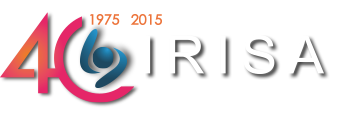Virtual reality to investigate sport performance
Résumé
To understand and improve performance it is important to isolate contributing factors to determine their role in player performance. Consequently, previous studies used different methodologies to access these parameters. The most common tool is the video based method, coupled or not to eyes trackers. Usually the researchers have employed the temporal occlusion paradigm, a method by which the amount of visual information presented to participants is controlled. A video of a pre-recorded sporting event is displayed and cut off at key moments. However if the temporal occulsion paradigm is accepted the methodology based on video could provide not very accurate results. Indeed, unlike virtual reality the video does not provide 3D or binocular display, not giving the player vital depth information. VR has a number of advantages over video presentation. Firstly, all factors affecting the player’s judgment can be controlled and tuned in a systematic manner, ensuring reproducibility between trials. Secondly the effects of this tuning on the player’s behavior can be monitored in real-time to ensure ecological validity. Thirdly tracking head movements in real time so that the player’s viewpoint in the virtual environment can be updated in real time helps enhance the feeling of presence.
In order to evaluate virtual reality technology, we have compared the behavior of handball goalkeepers in a judging task for two conditions. For the first one the handball goalkeepers have to predict the final position of a ball in a goal with a video display of a throwing movement. For the second one the handball goalkeepers have been immersed in a virtual environment and have predicted the final position of a ball for the same throwing movement than the one used with video.
| Origine | Fichiers produits par l'(les) auteur(s) |
|---|





